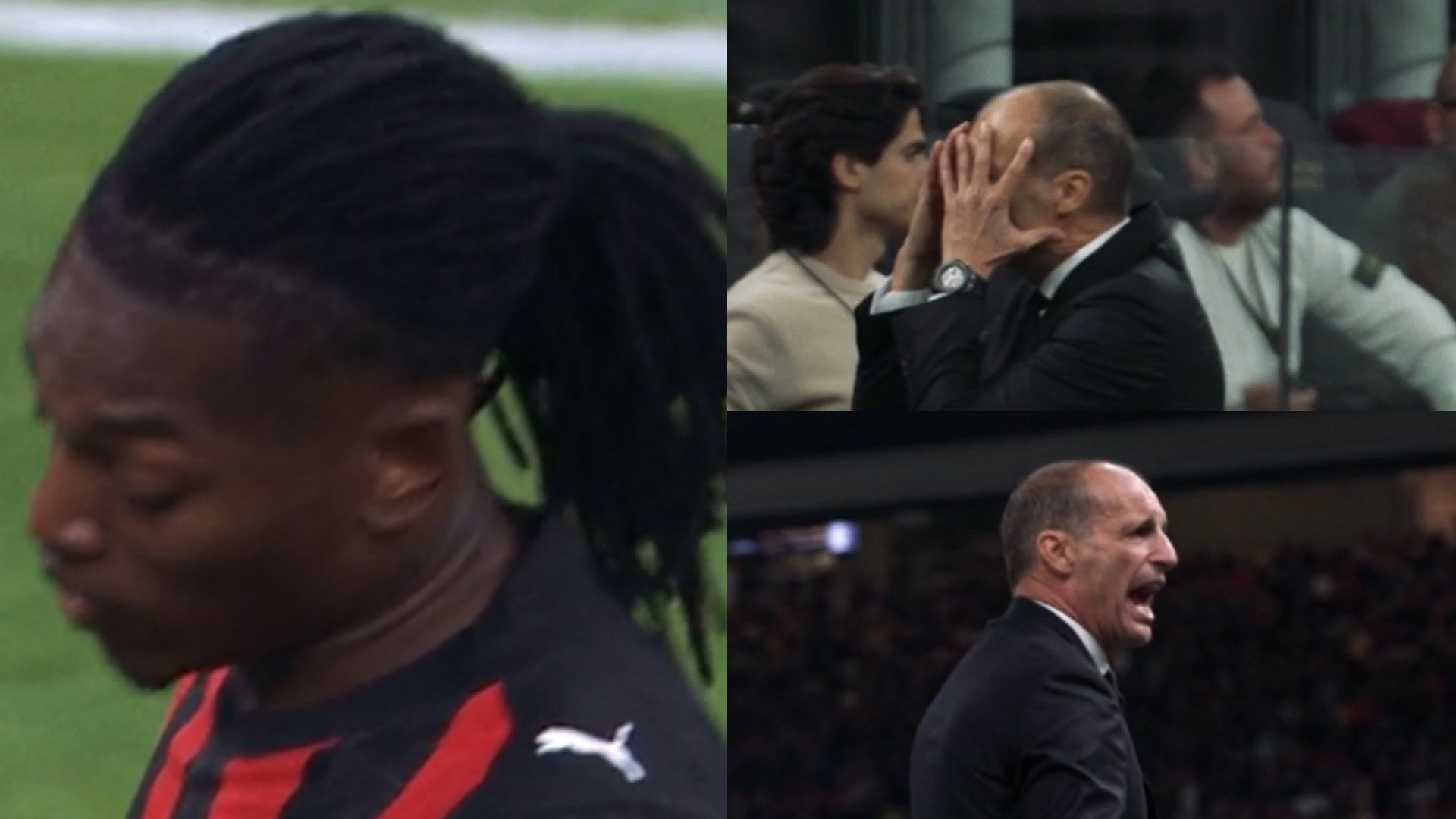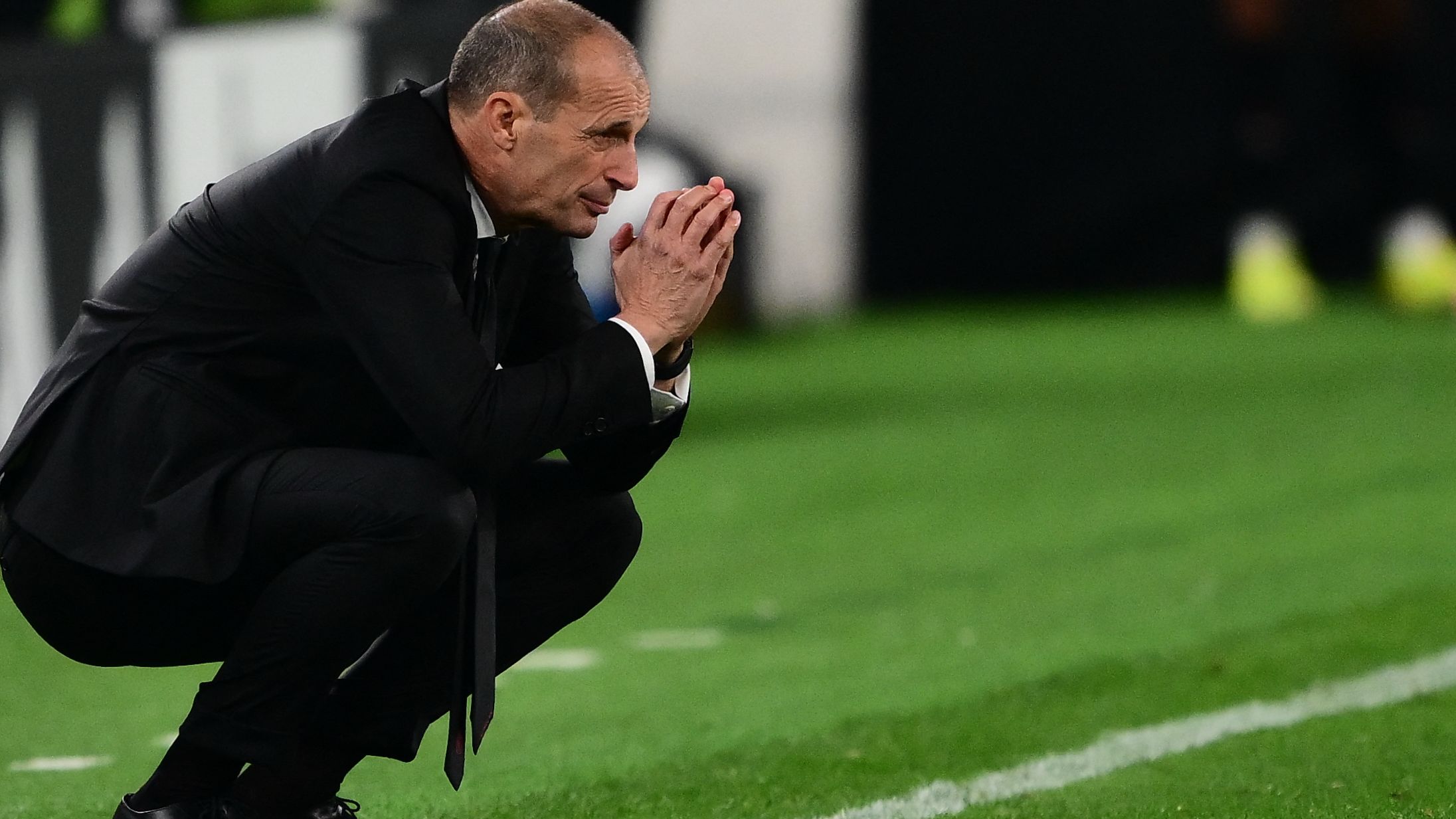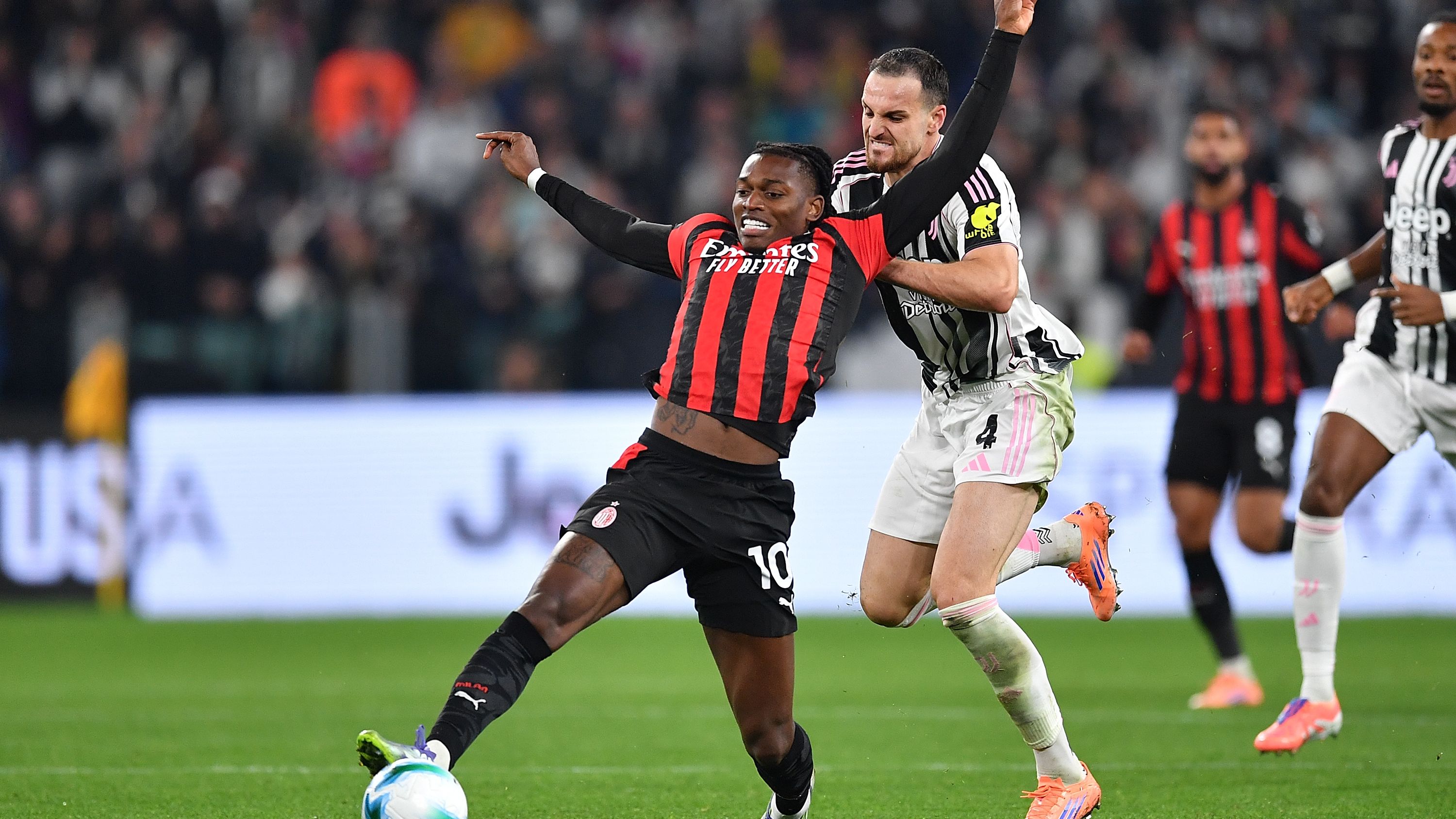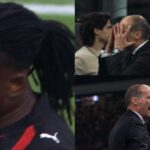


Fiery Showdown: How Allegri’s Tough Love is Shaping Leao’s Milan Journey
In the high-stakes world of Serie A, the dynamic between Rafael Leao and AC Milan manager Max Allegri has emerged as a pivotal narrative this season. Following a frustrating stalemate against Juventus in Turin, Allegri allegedly addressed Leao directly in the locker room, highlighting deficiencies in his play and commitment. Footage from the sidelines previously showed Allegri exclaiming “Don’t p*ss me off!” as Leao geared up to enter the game, and the striker subsequently failed to convert two prime chances, sparking an evident outburst from his leader, who reacted with animated gestures of irritation. As reported by La Gazzetta dello Sport, Allegri made it clear to Leao amid the team that his conduct during that match wouldn’t fly if he wanted to hold onto his starting spot.
Inside the Locker Room Drama and Team Dynamics
The Heated Moment and Its Aftermath
This confrontation played out openly before several teammates, serving as a calculated effort to uphold team expectations and unity. Observers noted Allegri’s delivery as firm yet measured, pushing Leao to demonstrate the dedication befitting Milan’s key playmaker. The incident stemmed from a string of wasted opportunities, such as a point-blank miss and a botched pass from experienced midfielder Luka Modric, underscoring Leao’s unpredictable form. Although some club insiders show understanding due to his recent injury recovery, many argue that the 26-year-old needs to step up his accountability during critical plays to truly make an impact.
Media Spotlight on Leao’s Evolving Role at Milan
Performance Trends and Growing Scrutiny
Italian outlets have intensified their focus on Leao, with his erratic displays reigniting debates over his sustained fit within the squad. Following his explosive 2021-22 season, Leao’s output has leveled off, as his scoring in the last couple of years echoes his initial struggles at San Siro, leaving fans and analysts questioning his development trajectory.
Intense Rivalry Within Milan’s Attack
New Competitors and Tactical Shifts
At AC Milan, the battle for forward positions is heating up, with Allegri now relying on versatile talents like Santiago Gimenez and Christopher Nkunku, who bring added defensive energy and adaptability to the lineup. Gimenez has been honing his aggressive pressing style for better results, while Nkunku adds value through his dynamic positioning and precise shots. Allegri’s emphasis on shared responsibility means that Leao’s creative skills must be paired with more discipline, as his past lapses in concentration and defensive duties have irked previous managers, including Paulo Fonseca and Sergio Conceicao, leading to benchings for comparable issues. The stakes are rising for Leao to adapt quickly or fade into the background.
What’s Next for Leao Amid Rising Pressures
Opportunities for Redemption and Future Prospects
Leao’s path forward may depend on his ability to bounce back post-international duties. Currently with Portugal in Lisbon, this break offers him a chance to recharge both mind and body. Upcoming tests against Fiorentina and Atalanta will gauge Leao’s readiness and Allegri’s tolerance, as the club still sees him as a core investment. Yet, should another season of variability occur, officials might rethink his status, especially with players like Christian Pulisic excelling, Gimenez advancing, and Nkunku poised to shine-these matches could determine if Leao stays as Milan’s focal point or joins the ranks of underachieved prospects.
The Intense Dressing Room Exchange Between AC Milan Coach and Rafael Leao
In the high-stakes world of Serie A, AC Milan coach Max Allegri has never shied away from delivering tough love to his players. Following a frustrating 0-0 draw against Juventus, Allegri reportedly engaged in a heated dressing room exchange with star forward Rafael Leao. This incident highlights the pressures of top-tier football, where even talented players like Leao face scrutiny for not converting chances into goals. Let’s dive into the details of this pivotal moment and what it means for AC Milan’s season.
After the Juventus draw, Allegri’s frustration boiled over, emphasizing the need for Leao to step up his game. Eyewitness accounts from the match suggest that the coach was direct in his feedback, urging Leao to be more clinical in front of goal. This kind of stern warning isn’t uncommon in football, but it underscores Allegri’s commitment to pushing his squad toward Scudetto contention. Fans and analysts alike have been buzzing about how this exchange could shape Leao’s development as a key AC Milan player.
Details of the Juventus Draw and Missed Opportunities
The match at the Allianz Stadium saw AC Milan dominate parts of the game but ultimately fail to break the deadlock. Juventus put up a solid defense, but Milan’s attacking play, led by Leao, lacked the finishing touch that could have secured a vital win. Allegri pointed out several instances where Leao and the team squandered golden opportunities, a sentiment echoed in post-match analyses.
For instance, Leao had a couple of promising runs down the flank, but his final decisions-whether a cross or a shot-fell short of expectations. This disappointing performance in the Juventus draw has sparked discussions about the importance of ruthlessness in football. Allegri’s comments focused on how such lapses can cost a team dearly in a competitive league like Serie A, where every point matters.
Max Allegri’s Specific Criticisms and Their Implications
Allegri didn’t hold back in his assessment, stating that Leao needs to learn to be more decisive. In one interview, he highlighted the young forward’s potential while stressing the need for improvement: “Leao must learn to be ruthless; we can’t afford to miss these chances.” This direct approach is part of Allegri’s coaching style, which blends encouragement with accountability, helping players like Leao refine their skills under pressure.
Such criticism from a seasoned coach like Allegri can be a turning point for a player. For Rafael Leao, known for his speed and dribbling prowess, this serves as a reminder that talent alone isn’t enough in AC Milan’s pursuit of glory. It’s these moments that often lead to breakthroughs, turning a good player into a great one.
Benefits of Constructive Criticism in Football
Constructive criticism, as demonstrated in Allegri’s exchange with Leao, plays a crucial role in player development. When delivered effectively, it can boost performance by identifying areas for growth without undermining confidence. For AC Milan fans, seeing their coach address issues head-on might build trust in the team’s strategy.
One major benefit is enhanced mental toughness. Players like Leao learn to handle pressure, which is essential in high-stakes matches such as the Juventus draw. Additionally, it fosters a culture of continuous improvement within the squad, ensuring that everyone is aligned toward common goals like winning the Serie A title.
- Improved Decision-Making: Criticism helps players analyze their choices on the pitch, leading to smarter plays in future games.
- Stronger Team Dynamics: Open feedback encourages accountability, strengthening bonds between coaches and players.
- Long-Term Success: As seen with other AC Milan stars, timely advice from coaches has historically led to career-best seasons.
Practical Tips for Players Facing Similar Scrutiny
If you’re a budding footballer or even a fan aspiring to play at a higher level, Allegri’s approach offers valuable lessons. First, embrace feedback as a tool for growth rather than a personal attack. Leao could benefit from reviewing game footage to pinpoint his misses, much like how professionals use video analysis.
Some practical tips include:
- Focus on Finishing Drills: Dedicate extra training time to shooting and one-on-one situations to build the ruthlessness Allegri demands.
- Mental Preparation: Techniques like visualization can help players stay calm in crucial moments, turning potential disappointments into opportunities.
- Seek Mentorship: Just as Leao has Allegri, find a coach or mentor who can provide honest insights without sugarcoating issues.
By applying these tips, players can transform criticism into a catalyst for improvement, potentially elevating their performance in Serie A and beyond.
Case Studies from Football History
Football history is filled with examples where a coach’s stern words led to remarkable turnarounds. Take, for instance, how Jose Mourinho’s intense management style helped players like Eden Hazard at Chelsea, pushing him to deliver in big games. Similarly, in AC Milan’s own legacy, coaches like Carlo Ancelotti have used pointed feedback to guide players through slumps.
In Leao’s case, parallels can be drawn to past AC Milan forwards who faced similar critiques. Players like Zlatan Ibrahimovic overcame early career doubts through rigorous self-improvement, eventually becoming club legends. These case studies show that an intense dressing room exchange, like the one with Allegri, can be the spark needed for a player’s evolution.
First-Hand Experience Insights
Drawing from observations in the football world, many players share stories of transformative moments from coach interactions. While I don’t have direct access to Allegri or Leao’s experiences, reports from matches indicate that such exchanges often lead to immediate impacts. For example, after Allegri’s comments, Leao might feel motivated to showcase his skills in the next fixture, turning the Juventus draw into a learning curve.
This kind of first-hand experience in elite football underscores the value of emotional intelligence in coaching. Allegri’s balanced approach-combining criticism with support-could help Leao refine his role in AC Milan’s attacking lineup, making him a more reliable asset in future draws and victories.
Overall, the AC Milan coach’s stern warning to Rafael Leao amid the Juventus draw exemplifies the high expectations in professional football. By focusing on growth and resilience, players and teams can navigate these challenges to achieve greater success. (Word count: 752)









